第6章 A COSMOPOLITE IN A CAFE(1)
At midnight the cafe was crowded. By some chance the little table at which I sat had escaped the eye of incomers, and two vacant chairs at it extended their arms with venal hospitality to the influx of patrons.
And then a cosmopolite sat in one of them, and I was glad, for I held a theory that since Adam no true citizen of the world has existed.
We hear of them, and we see foreign labels on much luggage, but we find travellers instead of cosmopolites.
I invoke your consideration of the scene--the marble-topped tables, the range of leather-upholstered wall seats, the gay company, the ladies dressed in demi-state toilets, speaking in an exquisite visible chorus of taste, economy, opulence or art; the sedulous and largess-loving ~garcons~, the music wisely catering to all with its raids upon the composers; the ~melange~ of talk and laughter--and, if you will, the Wurzburger in the tall glass cones that bend to your lips as a ripe cherry sways on its branch to the beak of a robber jay. I was told by a sculptor from Mauch Chunk that the scene was truly Parisian.
My cosmopolite was named E. Rushmore Coglan, and he will be heard from next summer at Coney Island. He is to establish a new "attraction" there, he informed me, offering kingly diversion. And then his conversation rang along parallels of latitude and longitude.
He took the great, round world in his hand, so to speak, familiarly, contemptuously, and it seemed no larger than the seed of a Maraschino cherry in a ~table d'hote~ grape fruit. He spoke disrespectfully of the equator, he skipped from continent to continent, he derided the zones, he mopped up the high seas with his napkin. With a wave of his hand he would speak of a certain bazaar in Hyderabad. Whiff! He would have you on skis in Lapland. Zip! Now you rode the breakers with the Kanakas at Kealaikahiki. Presto! He dragged you through an Arkansas post-oak swamp, let you dry for a moment on the alkali plains of his Idaho ranch, then whirled you into the society of Viennese archdukes. Anon he would be telling you of a cold he acquired in a Chicago lake breeze and how old Escamila cured it in Buenos Ayres with a hot infusion of the ~chuchula~ weed. You would have addressed a letter to "E. Rushmore Coglan, Esq., the Earth, Solar System, the Universe," and have mailed it, feeling confident that it would be delivered to him.
I was sure that I had found at last the one true cosmopolite since Adam, and I listened to his worldwide discourse fearful lest I should discover in it the local note of the mere globe-trotter. But his opinions never fluttered or drooped; he was as impartial to cities, countries and continents as the winds or gravitation. And as E. Rushmore Coglan prattled of this little planet I thought with glee of a great almost-cosmopolite who wrote for the whole world and dedicated himself to Bombay. In a poem he has to say that there is pride and rivalry between the cities of the earth, and that "the men that breed from them, they traffic up and down, but cling to their cities' hem as a child to the mother's gown." And whenever they walk "by roaring streets unknown" they remember their native city "most faithful, foolish, fond; making her mere-breathed name their bond upon their bond." And my glee was roused because I had caught Mr. Kipling napping. Here I had found a man not made from dust; one who had no narrow boasts of birthplace or country, one who, if he bragged at all, would brag of his whole round globe against the Martians and the inhabitants of the Moon.
Expression on these subjects was precipitated from E. Rushmore Coglan by the third corner to our table. While Coglan was describing to me the topography along the Siberian Railway the orchestra glided into a medley. The concluding air was "Dixie," and as the exhilarating notes tumbled forth they were almost overpowered by a great clapping of hands from almost every table.
It is worth a paragraph to say that this remarkable scene can be witnessed every evening in numerous cafes in the City of New York.
Tons of brew have been consumed over theories to account for it.
Some have conjectured hastily that all Southerners in town hie themselves to cafes at nightfall. This applause of the "rebel" air in a Northern city does puzzle a little; but it is not insolvable.
The war with Spain, many years' generous mint and watermelon crops, a few long-shot winners at the New Orleans race-track, and the brilliant banquets given by the Indiana and Kansas citizens who compose the North Carolina Society have made the South rather a "fad" in Manhattan. Your manicure will lisp softly that your left forefinger reminds her so much of a gentleman's in Richmond, Va.
Oh, certainly; but many a lady has to work now--the war, you know.
When "Dixie" was being played a dark-haired young man sprang up from somewhere with a Mosby guerrilla yell and waved frantically his soft-brimmed hat. Then he strayed through the smoke, dropped into the vacant chair at our table and pulled out cigarettes.
The evening was at the period when reserve is thawed. One of us mentioned three Wurzburgers to the waiter; the dark-haired young man acknowledged his inclusion in the order by a smile and a nod. I hastened to ask him a question because I wanted to try out a theory I had.
"Would you mind telling me," I began, "whether you are from--"
The fist of E. Rushmore Coglan banged the table and I was jarred into silence.